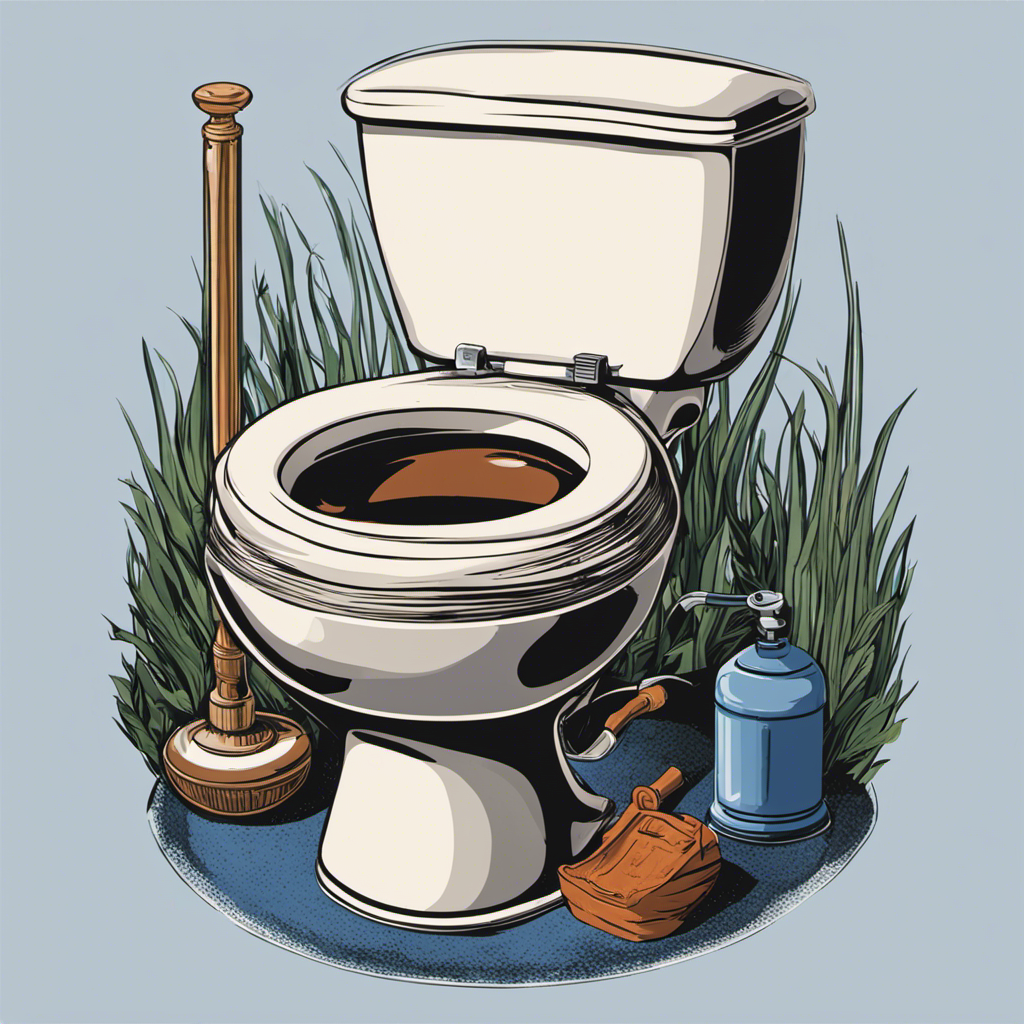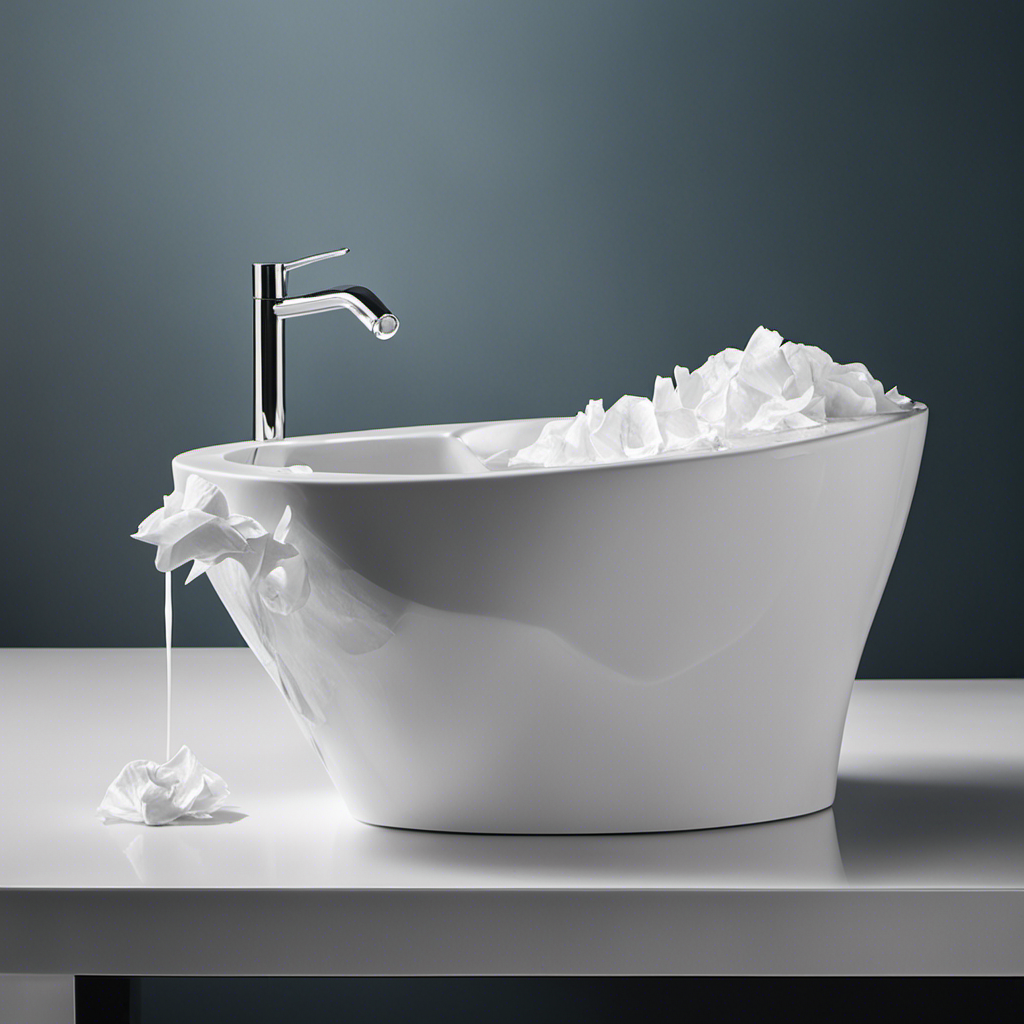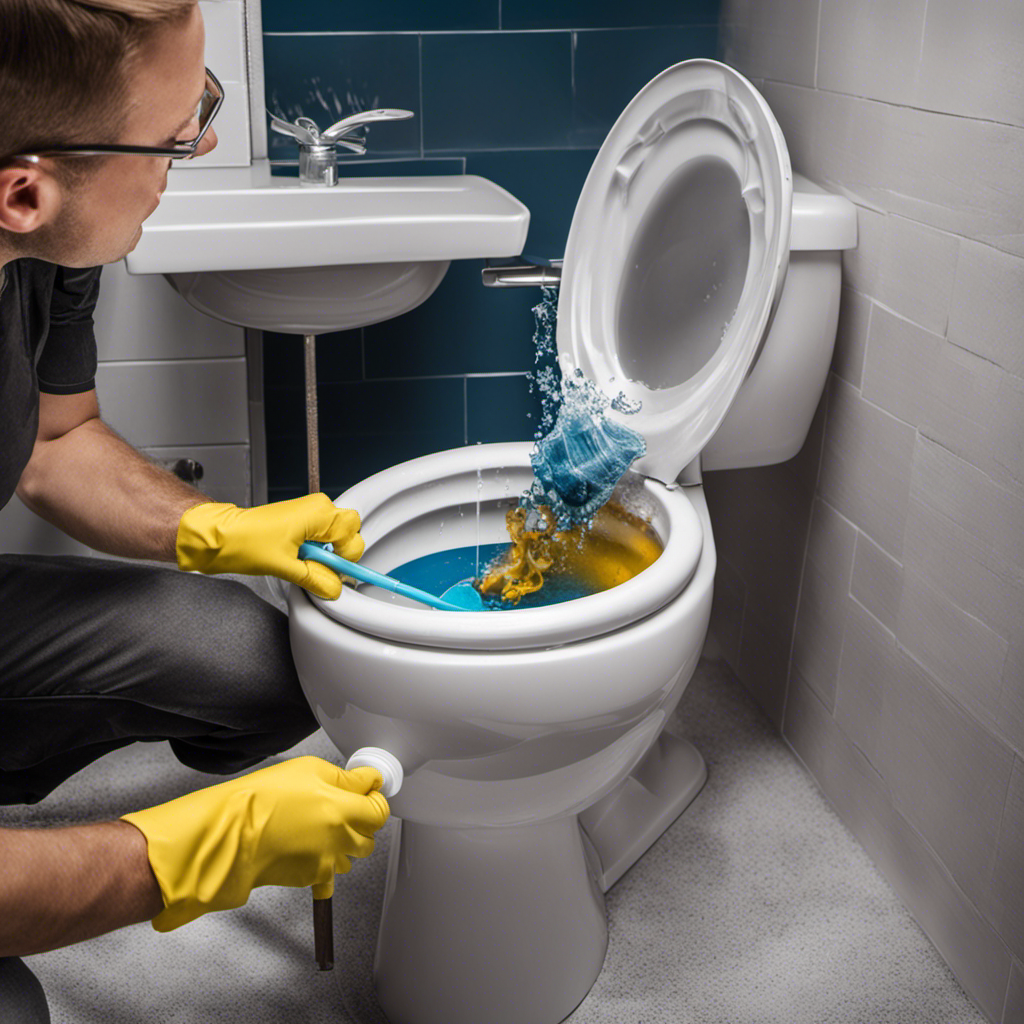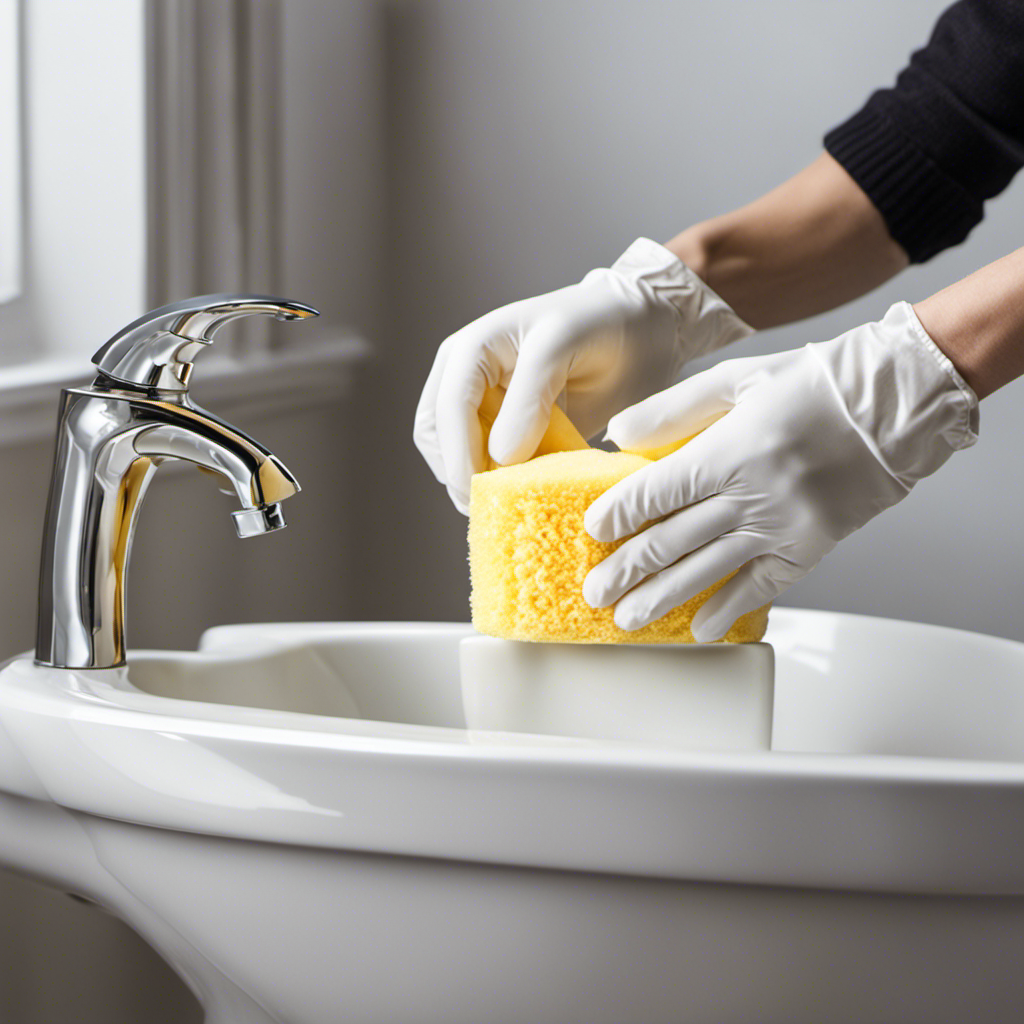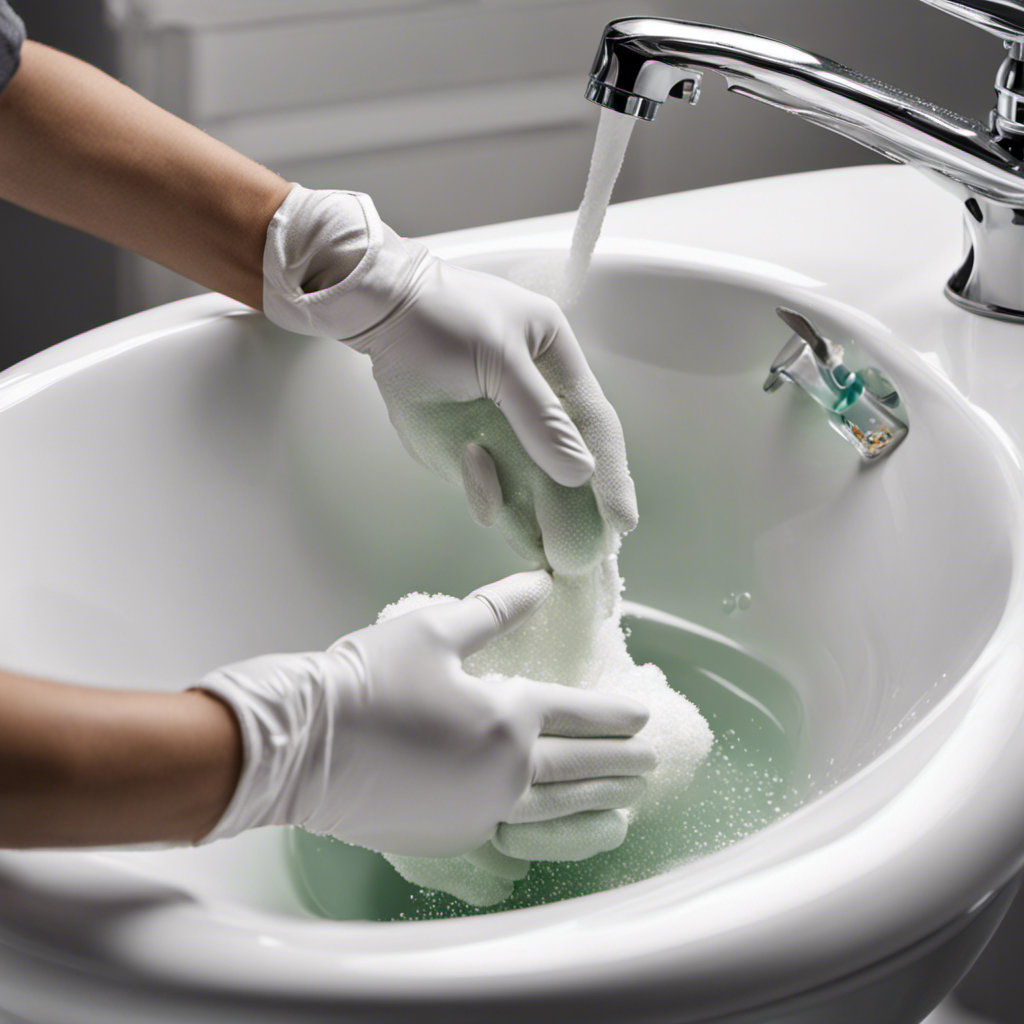FAQ - Advanced Bathroom Queries
Is It Okay if Oil Goes Down the Drain

Have you ever been curious about whether it’s permissible to dispose of oil in the sink drain? It’s common knowledge that it feels easy, yet what are the repercussions?
In this article, we will explore the impact of oil on wastewater treatment systems, the environmental damage caused by oil in waterways, and the health risks associated with oil-contaminated water.
We will also provide tips for proper disposal and recycling of oil. Join us as we delve into the importance of understanding and practicing oil disposal best practices.
Key Takeaways
- Oil disrupts the normal functioning of septic systems and decreases treatment efficiency, leading to the release of untreated wastewater into the environment.
- Oil poured down the drain can accumulate in pipes, causing clogs and blockages, resulting in slow drainage and backups.
- Oil buildup in plumbing systems can harm marine life and contaminate waterways, leading to environmental disruption.
- Proper oil disposal and recycling through local recycling centers or designated collection points are necessary to prevent damage to wastewater treatment systems and preserve the environment and aquatic life.
The Impact of Oil on Wastewater Treatment Systems
How does oil impact wastewater treatment systems?

The presence of oil in wastewater can have significant consequences on the efficiency and effectiveness of treatment systems. When oil is improperly disposed of and ends up in septic systems, it can disrupt the normal functioning of these systems.
Oil forms a layer on the surface of the water, preventing oxygen transfer and hindering the growth of beneficial microorganisms responsible for breaking down organic matter. This can lead to a decrease in the treatment efficiency, resulting in the release of partially treated or untreated wastewater into the environment.
Moreover, the accumulation of oil in septic systems can cause clogging and blockages, leading to costly repairs and maintenance.
It’s crucial to properly dispose of oil to prevent these detrimental effects on wastewater treatment systems.

Consequences of Oil Buildup in Plumbing Systems
The presence of oil in plumbing systems can have detrimental consequences on their functionality and efficiency. When oil is poured down the drain, it can accumulate in the pipes, leading to clogs and blockages. This can result in slow drainage, backups, and even burst pipes. Additionally, the buildup of oil in plumbing systems can also have a negative impact on marine life. As oil makes its way into wastewater and eventually into rivers, lakes, and oceans, it can contaminate aquatic ecosystems. The toxic substances in oil can harm fish, plants, and other organisms, disrupting the delicate balance of marine ecosystems. To avoid these consequences, it is crucial to properly dispose of oil and grease by recycling or disposing of them in designated containers.
| Consequences of Oil Buildup in Plumbing Systems | Impact on Marine Life |
|---|---|
| Clogs and blockages | Harm to fish |
| Slow drainage | Contamination |
| Backups | Disruption |
Environmental Damage Caused by Oil in Waterways
As we continue our discussion on the consequences of oil buildup in plumbing systems, it’s important to address the environmental damage caused by oil in waterways. Oil pollution is a significant concern as it leads to water contamination, posing serious threats to ecosystems.
Here are three key aspects to consider:
- Impact on Aquatic Life: When oil enters water bodies, it forms a slick on the surface, preventing oxygen from reaching marine organisms. This can lead to suffocation and death of fish, birds, and other aquatic animals. Additionally, oil can penetrate the feathers and fur of wildlife, impairing their ability to swim or fly.
- Disruption of Ecosystems: Oil pollution disrupts the delicate balance of ecosystems. It can harm plants and algae, which serve as the foundation of food chains. As a result, the entire ecosystem suffers, with cascading effects on other species and biodiversity.
- Long-term Effects: Oil contamination can persist in waterways for years, accumulating in sediments and affecting future generations of organisms. This can have lasting impacts on the health and stability of ecosystems, making it crucial to prevent oil from entering water systems in the first place.
Addressing oil pollution and minimizing water contamination are essential steps towards preserving our environment and ensuring the well-being of aquatic life.
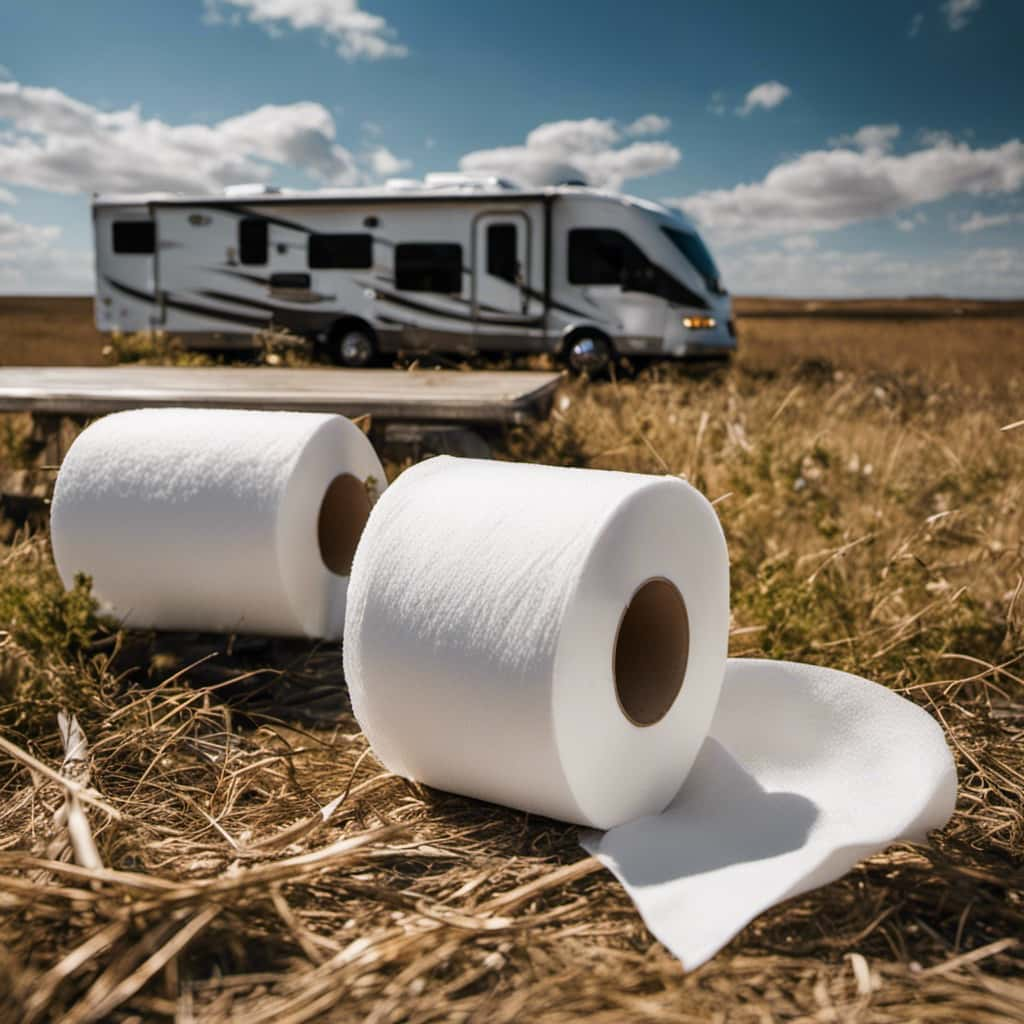
How Oil Affects Aquatic Life and Ecosystems
When oil is released into aquatic environments, it can have a devastating impact on marine life and ecosystems. The toxic components of oil can disrupt the natural balance of the ecosystem, leading to the death of fish, shellfish, and other aquatic organisms.
Additionally, oil spills can contaminate the water, making it difficult for organisms to breathe, feed, and reproduce. Overall, the presence of oil in aquatic environments poses a serious threat to the health and survival of marine life and the stability of ecosystems.
Oil and Aquatic Ecosystems
Although oil may seem harmless when it goes down the drain, it can have devastating effects on aquatic life and ecosystems. Here are three reasons why oil and aquatic ecosystems don’t mix:
- Oil spills: Accidental or intentional releases of oil into water bodies can lead to large-scale contamination. The oil forms a slick on the water surface, preventing oxygen exchange and sunlight penetration. This disrupts the delicate balance of the ecosystem, harming plants and animals that rely on these resources.
- Toxicity: Oil contains harmful chemicals such as polycyclic aromatic hydrocarbons (PAHs) and heavy metals. These substances can poison aquatic organisms, impairing their reproduction, growth, and immune function. Even small amounts of oil pollution can have long-lasting impacts on both individual organisms and the entire ecosystem.
- Habitat destruction: Oil can coat and smother habitats like coral reefs, seagrass beds, and mangroves. These important habitats provide shelter, breeding grounds, and food for countless species. When these habitats are destroyed or altered by oil, it disrupts the interconnected web of life, leading to declines in biodiversity and overall ecosystem health.
Understanding the detrimental effects of oil on aquatic ecosystems is crucial for implementing effective preventative measures and mitigating the damage caused by oil pollution.

Impact on Marine Life
Now let’s dive deeper into the impact of oil on marine life and how it directly affects the delicate balance of aquatic ecosystems.
Oil spills have devastating effects on marine ecosystems, causing harm to a wide range of marine animals and organisms. The toxic properties of oil can suffocate and smother marine life, leading to their death.
Oil can also contaminate the food chain, as it’s ingested by smaller organisms and then passed on to larger predators. This can result in bioaccumulation, where the concentration of toxins increases as it moves up the food chain.
Marine animals may also suffer from physical harm, such as oil coating their feathers or fur, impairing their ability to regulate body temperature or fly.

The long-term effects of oil spills on marine ecosystems are extensive, with potential impacts lasting for years or even decades.
It’s crucial to take proactive measures to prevent oil spills and minimize their impact on marine life and ecosystems.
Health Risks Associated With Oil-Contaminated Water
Our research has shown that exposure to oil-contaminated water poses significant health risks to individuals. Here are three important points to consider:
- Toxicity: Oil contains various harmful chemicals, such as benzene, toluene, and polycyclic aromatic hydrocarbons (PAHs). These substances can cause respiratory problems, skin irritation, and even cancer when ingested or absorbed through the skin.
- Contaminated Food Chain: Oil spills can contaminate water sources, leading to the accumulation of toxins in aquatic organisms. When humans consume these contaminated organisms, they may experience gastrointestinal issues, organ damage, and long-term health problems.
- Ecological Impact: Health risks associated with oil-contaminated water extend beyond the individual level. Environmental damage caused by oil spills can disrupt ecosystems, leading to the decline of marine life populations, loss of biodiversity, and overall degradation of habitats.
Considering these health risks and environmental damage, it’s essential to explore alternatives to pouring oil down the drain.

Alternatives to Pouring Oil Down the Drain
Using the article determiner, we can say that the best solution for disposing of oil is to explore recycling options or ensure its proper disposal.
Instead of pouring oil down the drain, which can lead to harmful consequences for the environment and public health, there are several alternatives available.
One option is to recycle the oil through local recycling centers or programs that accept used cooking oil. These centers often have processes in place to convert the used oil into biodiesel or other useful products.
Another alternative is to properly dispose of the oil by collecting it in a sealable container and taking it to a designated collection point, such as a hazardous waste facility or a local recycling event.

Recycling Options for Used Cooking Oil
When it comes to the disposal of used cooking oil, it’s important to consider its environmental impact and explore beneficial reuse options.
Pouring oil down the drain can lead to clogged pipes and sewer backups, causing harm to the environment and potentially expensive repairs.
However, there are recycling options available such as recycling centers that collect and process used cooking oil into biodiesel or other useful products, providing a more sustainable and responsible way to manage this waste.
Environmental Impact of Disposal
The environmental impact of disposal can be mitigated through recycling options for used cooking oil. Improper disposal of cooking oil can have severe consequences, particularly on water quality. When oil is poured down the drain, it can clog pipes and lead to sewer backups, causing damage to infrastructure and potentially contaminating water sources.

Recycling used cooking oil offers several benefits that help minimize these negative effects:
- Environmental Protection: Recycling used cooking oil reduces the amount of oil that ends up in landfills or water bodies, preventing pollution and protecting ecosystems.
- Renewable Energy Production: Used cooking oil can be converted into biodiesel, a clean-burning alternative to conventional diesel fuel. This reduces reliance on fossil fuels and decreases greenhouse gas emissions.
- Economic Opportunities: Recycling used cooking oil creates jobs in the collection, processing, and manufacturing sectors, contributing to local economies.
Beneficial Reuse Options
To continue our discussion on the environmental impact of disposal, let’s explore the beneficial reuse options for used cooking oil.
When it comes to used cooking oil, there are several beneficial reuse strategies that can be implemented to minimize environmental harm and maximize economic benefits.
One common option is recycling the oil for biodiesel production. Used cooking oil can be processed and converted into biodiesel, a renewable and cleaner-burning fuel alternative to traditional diesel. This not only reduces the demand for fossil fuels but also helps reduce greenhouse gas emissions.

Additionally, used cooking oil can be used in animal feed production, providing a valuable source of energy and nutrients.
Proper Disposal Methods for Motor Oil
Although it’s commonly overlooked, we must be aware of the importance of using proper disposal methods for motor oil. Improper disposal can have serious environmental consequences and can also lead to legal consequences for individuals who don’t follow proper procedures.
Here are three reasons why proper disposal methods for motor oil are crucial:
- Protecting the environment: Motor oil contains harmful chemicals and heavy metals that can contaminate water sources and harm aquatic life. By using proper disposal methods, such as recycling or taking it to a designated collection center, we can prevent these pollutants from entering the environment.
- Preventing damage to infrastructure: Improperly disposed motor oil can clog drains and sewer systems, leading to costly repairs and maintenance. By disposing of motor oil correctly, we can help maintain the functionality and longevity of our infrastructure.
- Ensuring compliance with regulations: Many jurisdictions have specific regulations regarding the disposal of motor oil. By following these regulations, we not only avoid legal trouble but also contribute to a safer and cleaner community.
Tips for Preventing Oil From Entering Drains
One important step we can take to prevent oil from entering drains is by properly disposing of it. Improper oil disposal can lead to oil spills and contamination of water sources, which can have detrimental effects on the environment. To ensure proper oil disposal, it is essential to follow these tips:

| Tips for Preventing Oil From Entering Drains | |||
|---|---|---|---|
| 1. Use a designated oil container | 2. Seal the container tightly | 3. Store the container in a cool, dry place | 4. Dispose of the oil at a recycling center or a designated facility |
By using a designated oil container and sealing it tightly, we can prevent any accidental spills or leaks. Storing the container in a cool and dry place helps maintain its integrity. Finally, it is crucial to dispose of the oil at a recycling center or a designated facility that specializes in handling oil waste. By following these tips, we can effectively prevent oil from entering drains and protect our environment from potential harm.
Now, let’s delve into the importance of educating others about oil disposal best practices.
Importance of Educating Others About Oil Disposal Best Practices
Educating others about oil disposal best practices is crucial for preventing environmental contamination. By spreading awareness and knowledge, we can promote sustainable waste management and ensure that oil is disposed of responsibly.
This not only protects our natural resources and ecosystems but also helps to maintain a clean and healthy environment for future generations.
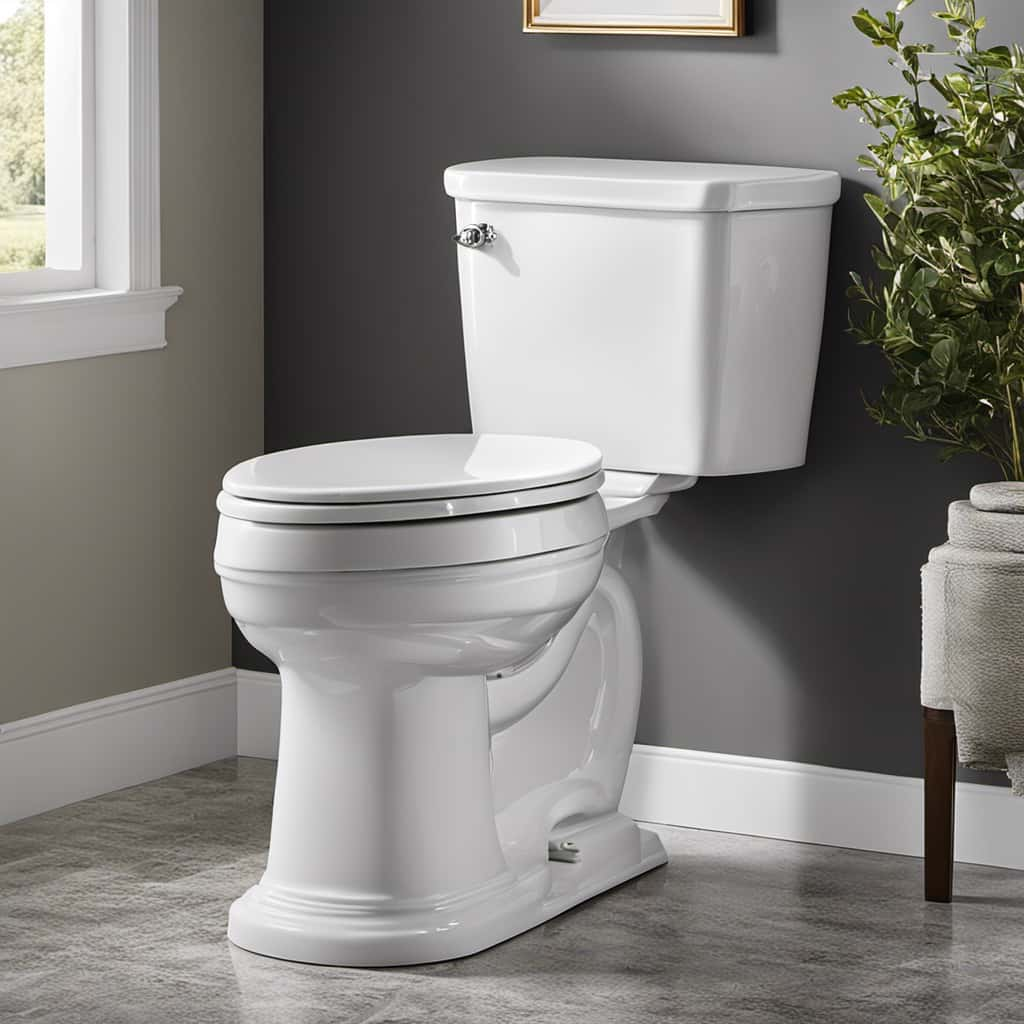
Preventing Environmental Contamination
We should emphasize the significance of educating others about best practices for oil disposal to prevent environmental contamination. Here are three reasons why this education is crucial:
- Preventing pollution: Proper oil disposal is essential in preventing pollution of our waterways and soil. When oil is poured down the drain or disposed of improperly, it can contaminate our water sources and harm aquatic life. Educating others about the proper methods of oil disposal can help minimize pollution and protect our ecosystems.
- Sustainable practices: By educating others about proper oil disposal, we promote sustainable practices. Recycling used oil allows it to be reused, reducing the need for virgin oil production and decreasing our reliance on fossil fuel extraction. This contributes to a more sustainable and environmentally-friendly approach to oil usage.
- Preserving natural resources: Oil is a valuable resource that should be conserved. By educating others about the importance of proper oil disposal, we can help preserve this finite resource. Recycling used oil not only reduces environmental contamination but also ensures that this resource can be reused in various industries.
Promoting Sustainable Waste Management
To promote sustainable waste management and prevent environmental contamination, it is crucial that we educate others about the best practices for oil disposal. Proper oil disposal is essential for waste reduction and ensuring sustainable practices. By following the correct methods, we can minimize the negative impact on the environment and protect our water sources from contamination.
One of the most effective ways to educate others about oil disposal best practices is through clear and concise communication. Providing information on the proper containers for oil storage, the importance of recycling used oil, and the potential consequences of improper disposal can help raise awareness and encourage responsible actions.
To grab the attention of the audience, here is a table highlighting the do’s and don’ts of oil disposal:

| Do’s | Don’ts |
|---|---|
| Use designated oil collection points | Pour oil down the drain |
| Store used oil in sealed containers | Mix oil with other substances |
| Recycle used oil properly | Dump oil in the trash |
| Dispose of oil through authorized facilities | Burn oil or bury it |
Encouraging Responsible Oil Disposal
Continuing our focus on sustainable waste management and promoting responsible oil disposal, let’s delve into the importance of educating others about best practices for oil disposal.
By spreading awareness and knowledge about proper oil disposal methods, we can contribute to reducing oil pollution and its harmful effects on the environment.
Here are three key reasons why educating others about oil disposal best practices is crucial:
- Preventing water contamination: Properly disposing of oil prevents it from entering water bodies, protecting aquatic life and ensuring the safety of our drinking water.
- Preserving soil quality: Dumping oil into the ground can lead to soil contamination, affecting plant growth and agricultural productivity. Educating others about the benefits of composting oil waste can help minimize these negative impacts.
- Promoting sustainability: By encouraging responsible oil disposal, we can contribute to a more sustainable future, reducing our dependence on fossil fuels and promoting the use of renewable energy sources.
Conclusion
In conclusion, it’s crucial to understand the negative impact of oil going down the drain.

Did you know that according to the Environmental Protection Agency (EPA), just one gallon of motor oil can contaminate up to one million gallons of water? This staggering statistic emphasizes the importance of proper oil disposal to protect our wastewater treatment systems, plumbing, waterways, aquatic life, and even our health.
Let’s make a conscious effort to educate ourselves and others about the best practices for oil disposal to safeguard our environment.
With an impeccable eye for detail and a passion for bathroom-related, Ava leads our editorial team gracefully and precisely.
Under her guidance, Best Modern Toilet has flourished as the go-to resource for modern bathroom enthusiasts. In her free time, you might find Ava exploring antique shops and looking for vintage bathroom fixtures to add to her collection.
FAQ - Advanced Bathroom Queries
Can You Flush the Toilet Paper in Italy

Have you ever wondered if it’s okay to flush toilet paper in Italy? Here’s the lowdown: plumbing practices in Italy may vary from what you’re used to.
We’ve all experienced those moments of uncertainty in unfamiliar bathrooms, right? But fear not, because we’re here to shed some light on this cultural quirk.
In this article, we’ll explore the ins and outs of toilet paper disposal in Italy and offer some handy tips for navigating public restrooms like a pro.
So, let’s dive in!
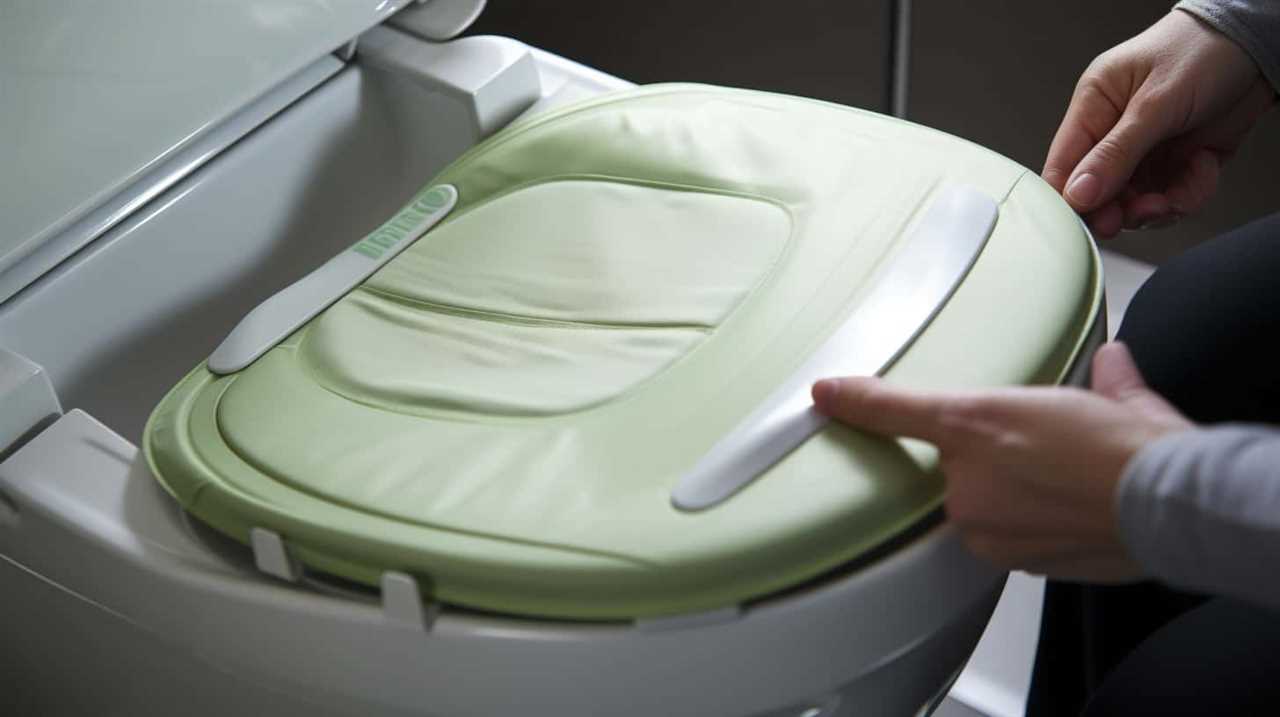
Key Takeaways
- Italian plumbing systems are designed to handle the disposal of toilet paper without any issues.
- In many parts of Italy, the plumbing systems aren’t designed to handle toilet paper, so it is not flushed.
- Italians often dispose of used toilet paper in a waste bin next to the toilet instead of flushing it.
- Proper toilet paper disposal in Italy contributes to the preservation of the country’s historic buildings and protects the delicate plumbing infrastructure.
Plumbing System in Italy
In Italy, the plumbing system allows us to flush toilet paper down the toilet. This convenience isn’t only practical but also has important maintenance and environmental implications.
When it comes to maintenance, Italian plumbing systems are designed to handle the disposal of toilet paper without any issues. The pipes and sewer systems are built to efficiently transport and process waste, including toilet paper, preventing clogs and blockages. This is a testament to the advanced engineering and infrastructure in the country.
From an environmental perspective, allowing the flushing of toilet paper reduces the need for alternative disposal methods such as trash bins or separate waste systems. It also minimizes the risk of contamination and the spread of bacteria.
However, cultural differences in toilet paper disposal exist, which we’ll explore in the next section.

ARTICLE TRANSITION:
Now that we’ve discussed the plumbing system in Italy, let’s delve into the cultural differences in toilet paper disposal.
Cultural Differences in Toilet Paper Disposal
Let’s explore the cultural differences that exist when it comes to disposing of toilet paper in Italy. Toilet paper etiquette in Italy is quite different from what most of us are accustomed to.
- Do Not Flush: In many parts of Italy, the plumbing systems aren’t designed to handle toilet paper. Instead of flushing it down the toilet, Italians often dispose of used toilet paper in a waste bin next to the toilet.
- Bin Placement: It’s important to note that these waste bins are usually lined with plastic bags, which are replaced regularly to maintain cleanliness.
- Odor Control: To minimize any unpleasant smells, it’s common for Italians to use scented garbage bags and air fresheners in the bathroom.
Understanding these cultural differences in toilet paper disposal is crucial to avoid any plumbing mishaps during your visit to Italy.
Now, let’s explore some alternative methods of toilet paper disposal.

Alternative Methods of Toilet Paper Disposal
We can explore some alternative methods of toilet paper disposal in Italy. While flushing toilet paper is not the norm, there are sustainable options available. One popular method is using a bidet, which is a separate water basin used for cleaning oneself after using the toilet. Bidets are commonly found in Italian bathrooms and offer a hygienic and eco-friendly alternative to toilet paper. Another option is to use toilet paper specifically designed for disposal in waste bins, rather than flushing it. These specially-made toilet paper products are biodegradable and can be safely discarded in the bins provided. By utilizing these alternative methods, Italians are able to reduce their environmental impact while maintaining cleanliness. Speaking of cleanliness, let’s now move on to some tips for using public restrooms in Italy.
| Sustainable Options | Bidet Usage |
|---|---|
| Hygienic | Water-based |
| Eco-friendly | Reduces waste |
| Common in Italy | Alternative to toilet paper |
| Biodegradable | Clean and refreshing |
| Reduces environmental impact | Promotes personal hygiene |
Now that we’ve explored alternative methods of toilet paper disposal, let’s dive into some tips for using public restrooms in Italy.
Tips for Using Public Restrooms in Italy
Moving on to using public restrooms in Italy, there are a few tips that can help ensure a pleasant experience.
- Practice good hand hygiene: Always carry hand sanitizer or antibacterial wipes, as not all restrooms may have soap or paper towels available.
- Follow proper toilet etiquette: Italians are serious about keeping restrooms clean. It’s important to remember to not throw toilet paper into the toilet bowl, but instead, dispose of it in the waste bin provided.
- Be prepared for paid restrooms: Many public restrooms in Italy require a small fee for usage. It’s helpful to always carry some loose change to avoid any awkward situations.
Conclusion: Proper Toilet Paper Disposal in Italy
Continuing the conversation from the previous subtopic, we can delve into the proper disposal of toilet paper in Italy. When it comes to cultural implications, it is important to note that Italy has a different approach to toilet paper disposal compared to other countries. In most regions, it is customary to throw used toilet paper into a bin next to the toilet instead of flushing it down the toilet. This practice is rooted in the country’s older plumbing systems, which are not designed to handle large amounts of toilet paper.

This method of disposal may seem unusual to visitors, but it is essential to respect and abide by local customs. It is also worth considering the environmental impact of flushing toilet paper. By disposing of it in a bin, Italy reduces the strain on its sewage system and prevents potential blockages and costly repairs. Additionally, this practice contributes to the preservation of the country’s historic buildings, as it helps protect the delicate plumbing infrastructure.
To help you understand the proper toilet paper disposal in Italy, here is a simple table outlining the key differences compared to other countries:
| Country | Toilet Paper Disposal Method |
|---|---|
| Italy | Throw in a bin |
| United States | Flush down the toilet |
| United Kingdom | Flush down the toilet |
Frequently Asked Questions
Is the Plumbing System in Italy Similar to the Plumbing System in Other Countries?
Cultural differences affect plumbing systems worldwide. When comparing the plumbing system in Italy to others, it’s essential to consider factors like toilet paper disposal. Understanding these variations helps us navigate plumbing practices while traveling.
What Are Some Cultural Differences in Toilet Paper Disposal in Italy Compared to Other Countries?
Cultural practices vary when it comes to toilet paper disposal in Italy compared to other countries. It’s important to note that some places don’t allow flushing due to the plumbing system and environmental impact.

Are There Any Alternative Methods of Toilet Paper Disposal Commonly Used in Italy?
There are alternative methods of toilet paper disposal commonly used in Italy. Some eco-friendly options include bidets, which provide a more thorough clean, and wet wipes, which can be tossed in a special bin.
Do Public Restrooms in Italy Have Any Specific Rules or Norms That Visitors Should Be Aware Of?
When using public restrooms in Italy, it’s important to be mindful of toilet paper etiquette and maintain cleanliness. Familiarizing yourself with the specific rules and norms will ensure a smooth experience.
Why Is Proper Toilet Paper Disposal Important in Italy?
Proper toilet paper disposal is important in Italy due to the environmental impact of improper disposal. It helps maintain hygiene and prevents clogging of the sewage system. It’s crucial to follow local guidelines and dispose of toilet paper in the appropriate bins provided.
Conclusion
In conclusion, when it comes to toilet paper disposal in Italy, remember to always follow their cultural norms and plumbing system. As the saying goes, ‘When in Rome, do as the Romans do.’
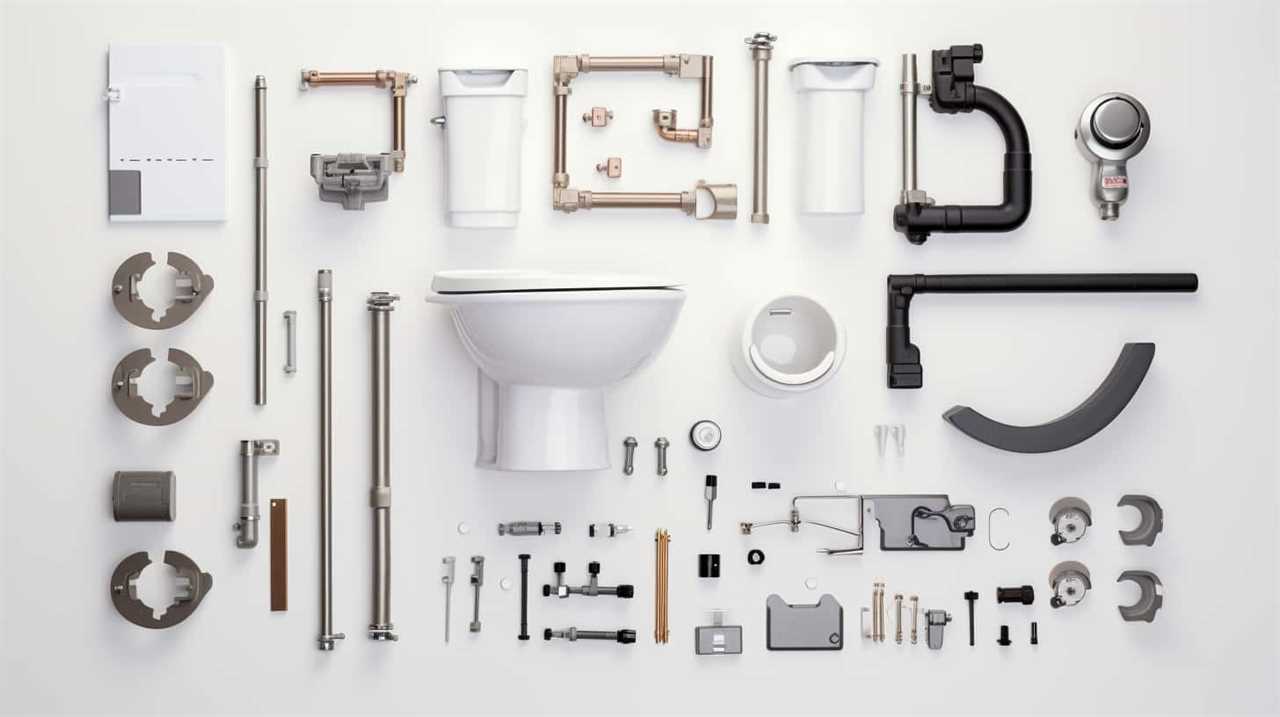
Be mindful of the alternative methods available and always use public restrooms responsibly. By respecting their customs, we can ensure a smooth and pleasant experience while visiting Italy.
So next time you’re in the beautiful country, remember to be considerate and flush the toilet paper in the designated manner.
With an impeccable eye for detail and a passion for bathroom-related, Ava leads our editorial team gracefully and precisely.
Under her guidance, Best Modern Toilet has flourished as the go-to resource for modern bathroom enthusiasts. In her free time, you might find Ava exploring antique shops and looking for vintage bathroom fixtures to add to her collection.
FAQ - Advanced Bathroom Queries
Can Wipes Go in the Toilet

Were you aware that flushing wipes down the toilet is the cause of over 90% of clogged pipes in the United States?
We, as a collective, need to understand the impact this seemingly harmless action has on our plumbing systems and the environment.
In this article, we will delve into the consequences of flushing wipes, explore alternative methods, and provide you with the proper disposal techniques.
Let’s educate ourselves and make informed decisions about the safety of flushing wipes.

Key Takeaways
- Flushing wipes can cause clogged pipes, leading to expensive plumbing repairs.
- Flushing wipes contributes to marine pollution and harm to marine life and ecosystems.
- Biodegradable and reusable wipes are eco-friendly alternatives to flushing wipes.
- Proper disposal of wipes in the trash can help prevent blockages in the sewage system and protect the environment.
The Impact on Plumbing Systems
In our experience, flushing wipes down the toilet can have a detrimental impact on plumbing systems. When wipes are flushed, they can accumulate and create blockages in the pipes. This can lead to plumbing repairs that are time-consuming and costly.
The fibers in wipes don’t break down as easily as toilet paper, causing them to clump together and form clogs. These clogs can restrict the flow of water, leading to backups and potential flooding. Additionally, the presence of wipes in the pipes can create a breeding ground for bacteria, further exacerbating the problem.
It’s important to understand that the convenience of flushing wipes comes at the expense of potential plumbing issues. Transitioning to the subsequent section, the environmental consequences of flushing wipes will also be explored.
Environmental Consequences of Flushing Wipes
Continuing our exploration of the impact of flushing wipes on plumbing systems, we now turn our attention to the environmental consequences of this practice. Flushing wipes can have severe implications for our marine ecosystems and sewage treatment facilities.

Here are four key reasons why flushing wipes can be detrimental to the environment:
- Marine pollution: Wipes that are flushed down the toilet often end up in our oceans and waterways, contributing to marine pollution. These wipes can harm marine life, such as turtles and seabirds, when they mistake them for food or become entangled in them.
- Clogging sewage treatment facilities: Wipes don’t break down like toilet paper. Instead, they accumulate in sewage systems, leading to blockages and costly repairs for sewage treatment facilities. This can also result in untreated sewage overflow into our rivers and oceans.
- Increased energy and chemical usage: Dealing with wipes in sewage treatment plants requires additional energy and chemical usage, as these facilities need to work harder to break down and remove them. This increased resource consumption can have a negative impact on the environment.
- Microplastic pollution: Wipes often contain synthetic fibers that don’t biodegrade. When they enter water bodies, they break down into microplastics, which are harmful to aquatic life. These microplastics can be ingested by marine organisms, potentially entering the food chain and causing further harm.
It is crucial to avoid flushing wipes down the toilet to protect our marine ecosystems and sewage treatment facilities. Proper disposal in the trash can help mitigate these environmental consequences.
Alternatives to Flushing Wipes
Now, let’s delve into some alternatives to flushing wipes.
When it comes to biodegradable options, there are wipes available on the market that are made from materials that can break down naturally over time. These wipes are designed to be safe for the environment and can be disposed of in a compost bin or in the trash.
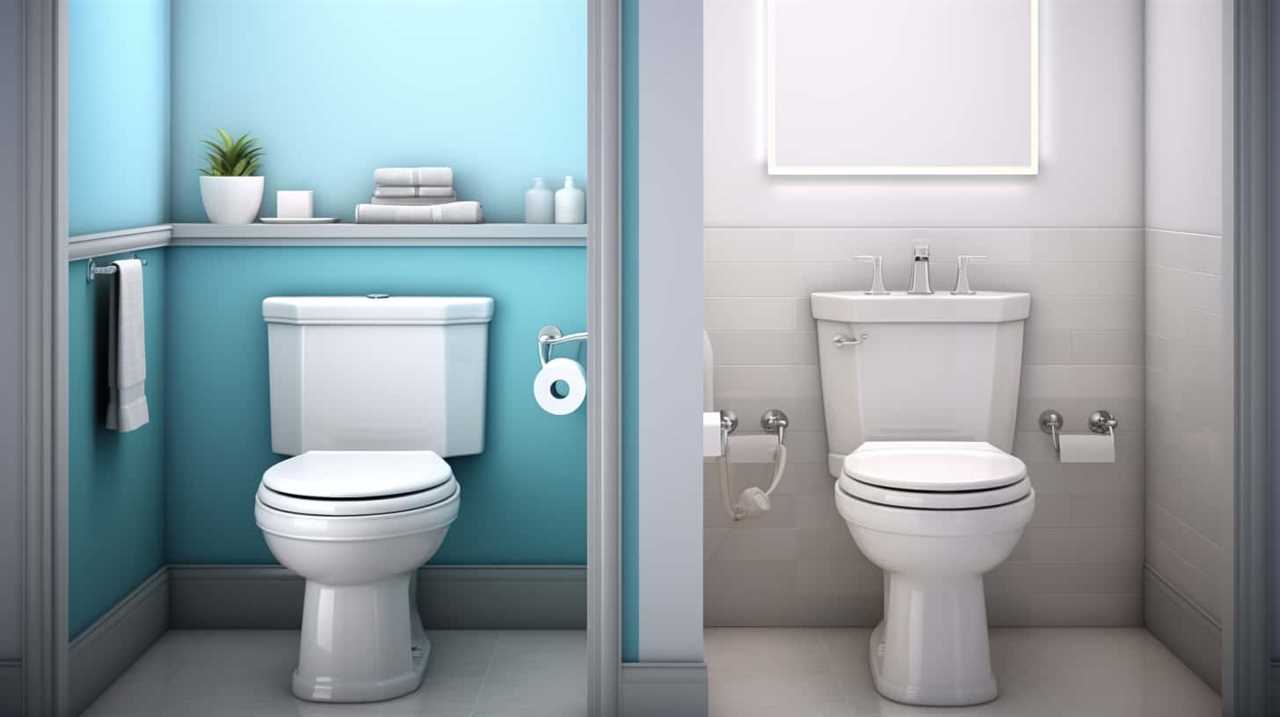
Another alternative is to create your own DIY reusable wipes. By using soft, washable materials such as cotton or bamboo fabric, you can make your own wipes that can be used multiple times before being washed. This not only reduces waste but also saves money in the long run.
Remember to wash these wipes thoroughly after each use to maintain hygiene.
Proper Disposal Methods for Wipes
To properly dispose of wipes, we should consider alternative methods that are safe for the environment and easy to implement. Here are four options to consider:
- Trash Bin: The simplest and most common method is to dispose of wipes in a trash bin. This ensures that they don’t end up in the sewage system and cause blockages.
- Composting: If you’re using biodegradable wipes, you can compost them along with other organic waste. Make sure to check the packaging for information on their biodegradability.
- Specialized Disposal Programs: Some municipalities offer specialized programs for disposing of wipes. These programs collect and dispose of wipes in an environmentally friendly manner.
- Flushable Wipes: If you choose to use flushable wipes, make sure they’re labeled as such and follow the manufacturer’s instructions. However, keep in mind that even flushable wipes can cause issues in the sewage system.
Considering the importance of hygiene practices during COVID-19, it’s crucial to dispose of wipes properly to protect the environment and prevent clogs in the sewage system.
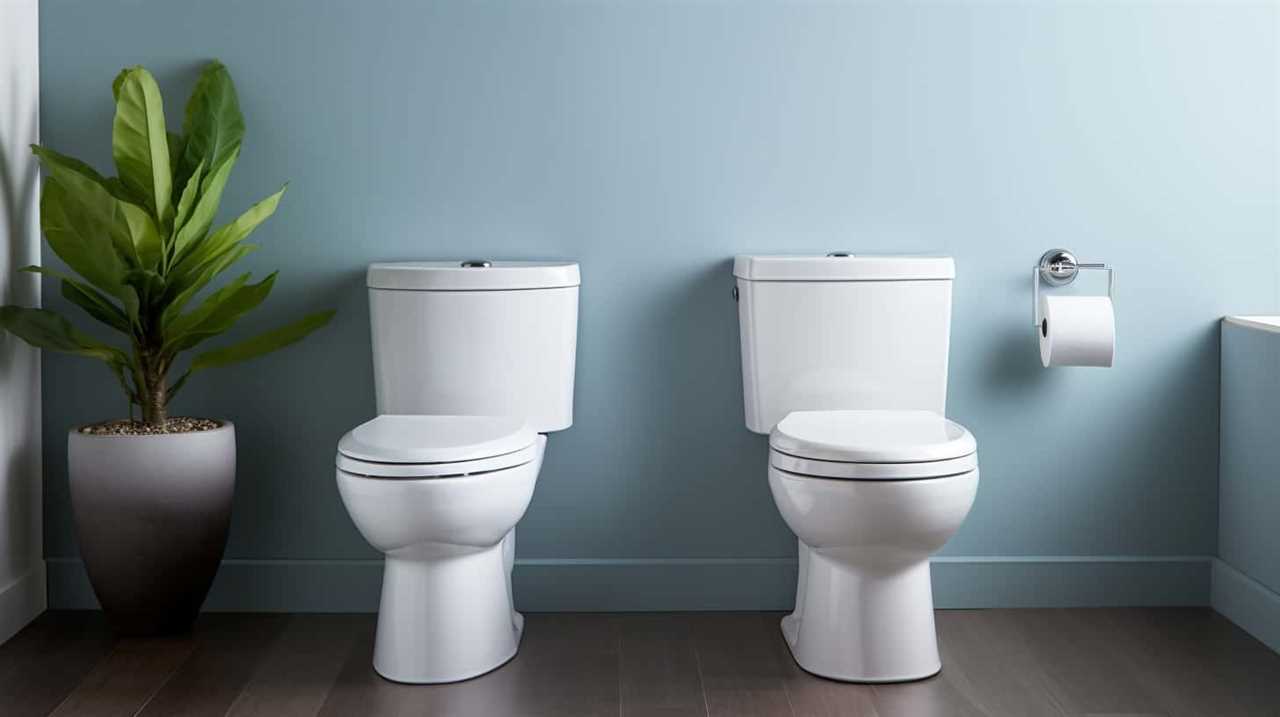
However, is it really safe to flush wipes? Let’s find out in the next section.
Conclusion: Is It Safe to Flush Wipes?
After considering the various disposal methods for wipes, it’s important to assess the safety of flushing them down the toilet. Although convenient, flushing wipes carries certain risks that shouldn’t be overlooked.
One of the main concerns is the potential damage to septic tanks. Unlike toilet paper, wipes don’t break down easily. Instead, they can accumulate in the septic tank and clog the system. This can lead to costly repairs and even complete system failure.
Additionally, wipes may also contribute to sewer backups and overflow in municipal sewer systems, causing environmental contamination and health hazards.
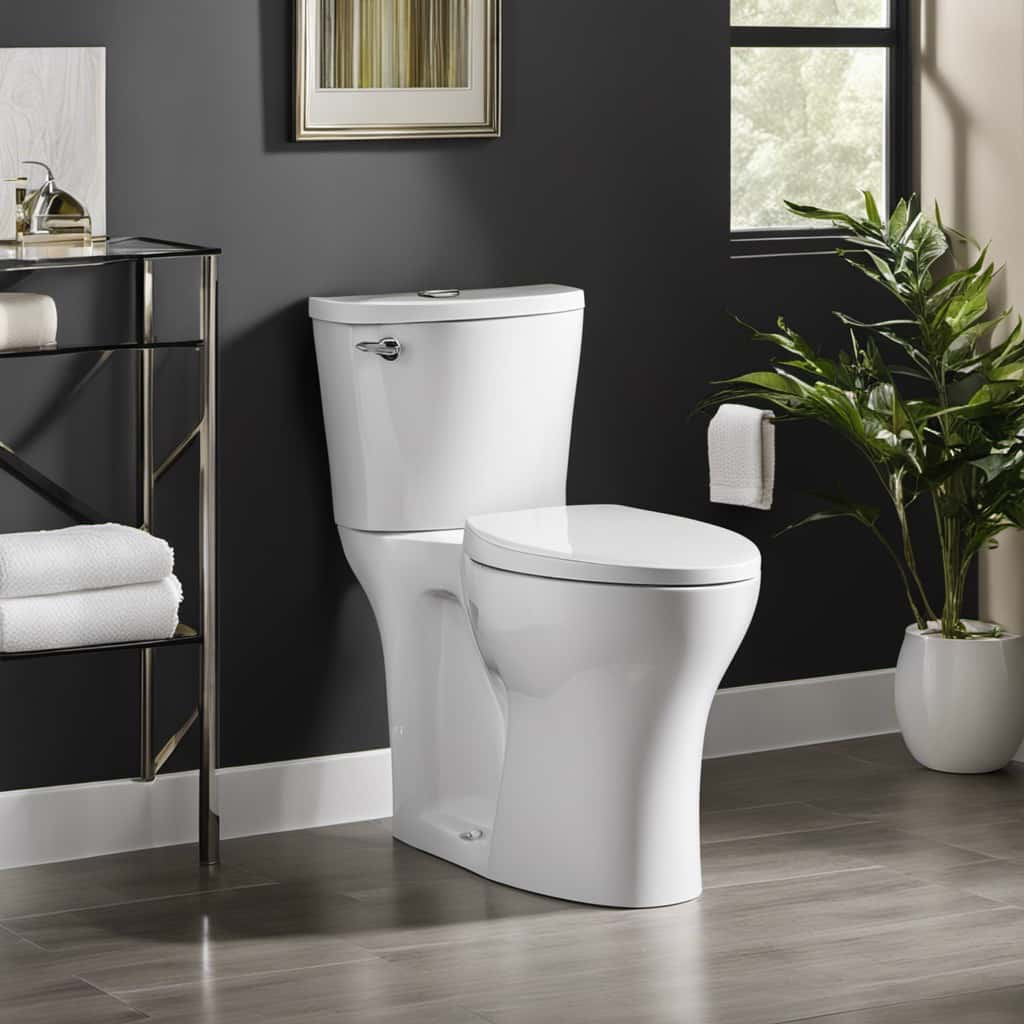
Therefore, it’s generally recommended to avoid flushing wipes and instead dispose of them in the trash to minimize the risks involved and prevent potential septic tank implications.
Frequently Asked Questions
How Do Wipes Affect the Quality of Water in Rivers and Oceans?
The impact of wipes on marine life is significant. Proper disposal methods are crucial to protect the quality of water in rivers and oceans. We must understand the consequences of not disposing of wipes correctly to ensure the health of our ecosystems.
Are All Types of Wipes Equally Harmful to the Environment When Flushed?
Different types of wipes have varying environmental impacts when flushed. Biodegradable wipes are more effective in reducing harm. Flushing wipes, regardless of type, can contribute to clogged pipes and sewage system issues.
Can Flushing Wipes Lead to Blockages in Household Plumbing Systems?
Flushing wipes can wreak havoc on our plumbing. We learned the hard way when our toilet backed up, causing a messy flood. Not only do wipes clog sewage systems, but they also pose potential health hazards.

What Are Some Environmentally-Friendly Alternatives to Flushing Wipes?
Eco-friendly options and biodegradable alternatives are available as substitutes for flushing wipes. These alternatives are environmentally conscious and can help prevent blockages in household plumbing systems while still providing the desired functionality.
Are There Any Specific Guidelines for Disposing of Wipes in Landfills?
Guidelines for disposing of wipes in landfills are essential. We must follow proper procedures to avoid environmental harm. Disposing of wipes incorrectly can lead to clogged pipes, sewage backups, and negative impacts on our water systems.
Conclusion
In conclusion, it’s crucial to remember that wipes should never be flushed down the toilet. Despite their convenience, flushing wipes can lead to severe plumbing issues and have detrimental environmental consequences.
It’s essential to explore alternative disposal methods, such as throwing them in the trash or using biodegradable options.

Let’s be mindful of our actions and protect our plumbing systems and the environment for future generations.
With an impeccable eye for detail and a passion for bathroom-related, Ava leads our editorial team gracefully and precisely.
Under her guidance, Best Modern Toilet has flourished as the go-to resource for modern bathroom enthusiasts. In her free time, you might find Ava exploring antique shops and looking for vintage bathroom fixtures to add to her collection.
FAQ - Advanced Bathroom Queries
What Liquids Can Be Flushed Down the Toilet

Here’s what we’re aware of: not all liquids are safe to be flushed down the toilet. But don’t worry, we have the information on what can be safely flushed.
In this article, we’ll break it down for you, using our technical know-how and expertise. From water and urine to toilet paper and liquid waste from cleaning and personal care products, we’ll guide you through the dos and don’ts of flushing liquids.
Get ready to master the art of proper toilet liquid disposal!
Key Takeaways
- Water, urine, and toilet paper are the only liquids that can be safely flushed down the toilet.
- Flushing harmful liquids down the toilet can lead to water pollution, contamination of water sources, harm to aquatic life, and sewer system blockages.
- Liquids such as cooking oil and grease, medications and drugs, paint and solvents, and cleaning chemicals should never be flushed down the toilet.
- Proper disposal methods for liquids include utilizing recycling centers, contacting waste management authorities for guidance, participating in community collection events, and using sealed containers or absorbent materials before disposal.
Water
We can flush large quantities of water down the toilet without causing any harm to the plumbing system. Toilet water, which is essentially clean water, poses no threat to the pipes or the overall hygiene of the toilet. This is because the plumbing system is designed to handle the volume and flow of water during the flushing process.
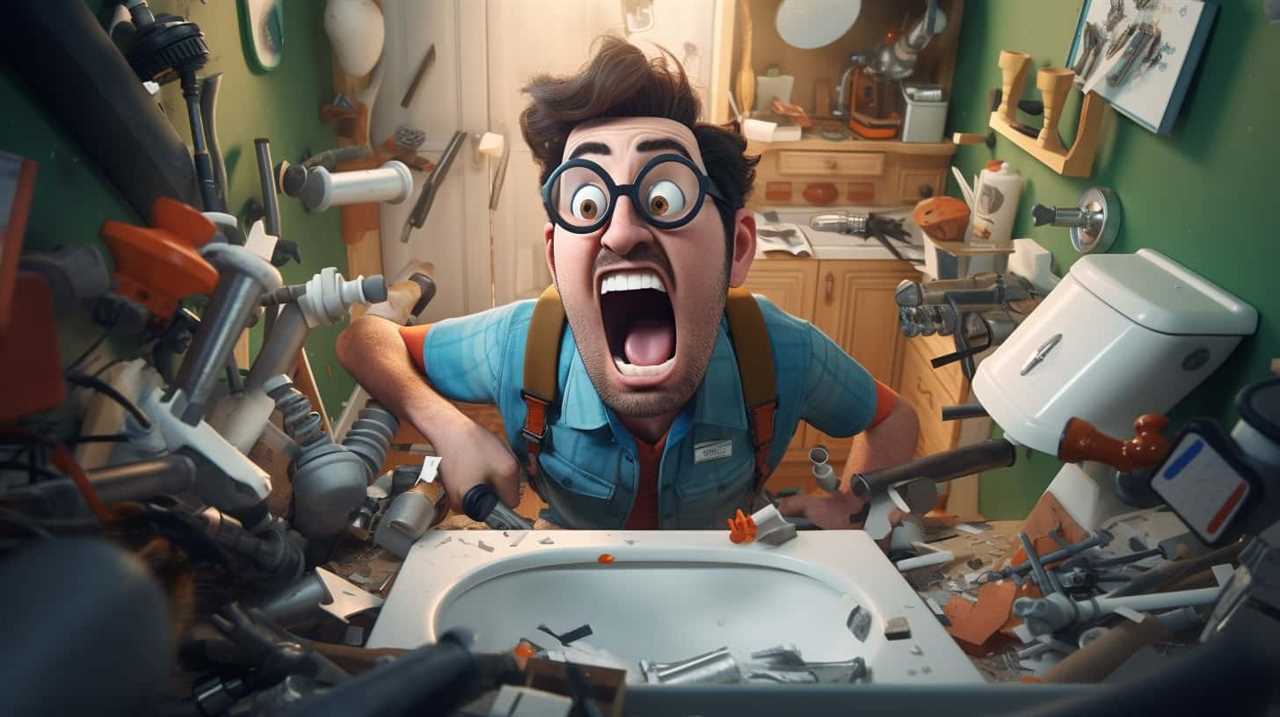
Water is an essential element in maintaining toilet hygiene, as it helps in effectively rinsing away waste and preventing any unpleasant odors. Additionally, the force of the water during flushing aids in keeping the toilet bowl clean and free from any residue.
Therefore, when it comes to toilet hygiene, water is a safe and necessary liquid that can be flushed down the toilet without any concerns.
Urine
To maintain proper toilet hygiene, we can safely flush urine down the toilet. Urine is a waste product produced by the kidneys, consisting mainly of water and dissolved metabolic waste. It’s generally sterile and poses no significant risk to the environment or public health when flushed down the toilet. In fact, flushing urine helps to prevent odors and maintain a clean and hygienic toilet environment.
However, it’s important to note that if someone has a urinary tract infection (UTI), it’s advisable to seek medical attention and follow the prescribed treatment. UTIs can be caused by bacteria and flushing urine infected with bacteria may contribute to the spread of infection.
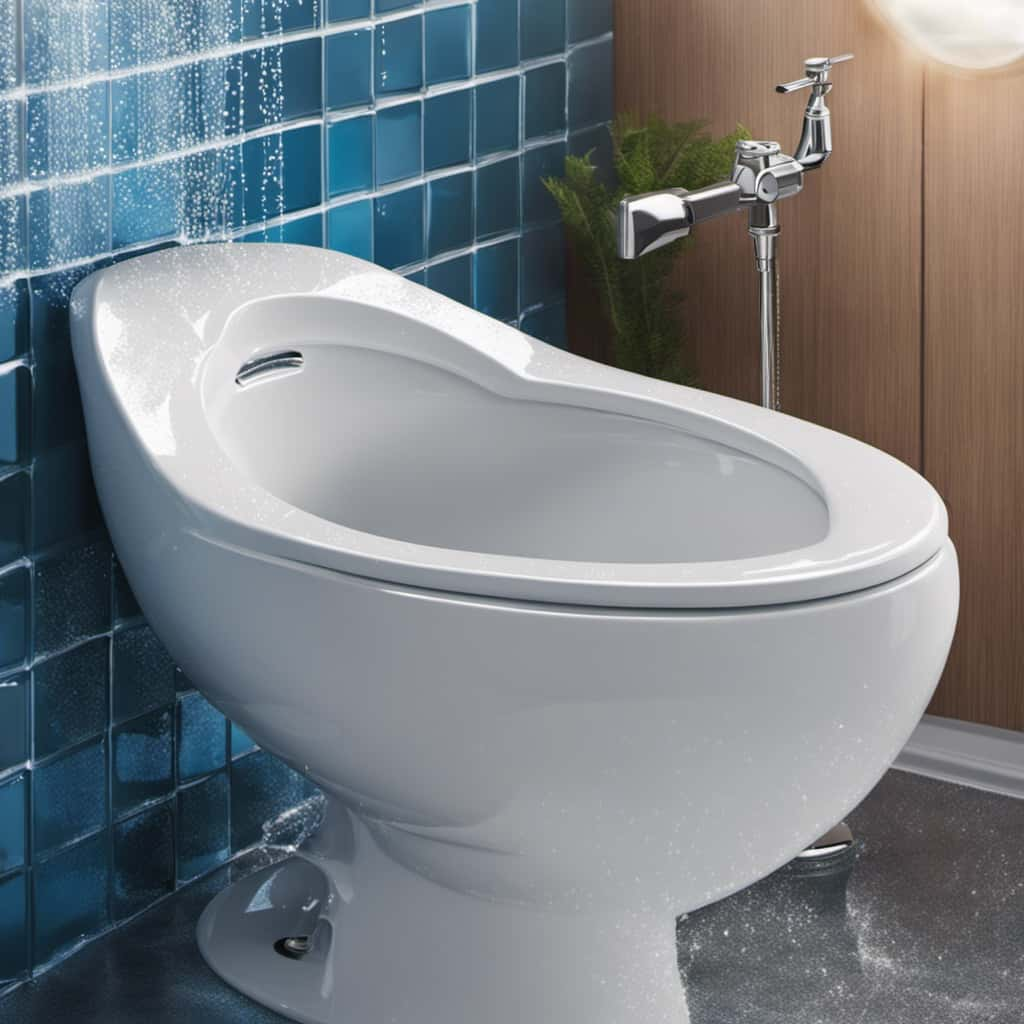
Now, let’s move on to the next essential topic of discussion: toilet paper.
Toilet Paper
Moving on from the previous subtopic of urine, let’s now discuss toilet paper and its role in maintaining proper toilet hygiene. Toilet paper is an essential item in every bathroom, and choosing the right brand is crucial. Here are four important factors to consider when selecting toilet paper:
- Softness: Look for brands that offer a soft and gentle texture to avoid any discomfort during use.
- Strength: Opt for toilet paper that’s strong and durable to prevent tearing or breakage.
- Absorbency: Consider brands that offer excellent absorbency for efficient cleaning and reduced usage.
- Eco-Friendliness: Explore toilet paper alternatives made from recycled materials or bamboo, which are more sustainable options.
Liquid Waste From Cleaning Products
After considering the factors for selecting the right toilet paper, let’s now turn our attention to the proper disposal of liquid waste from cleaning products. When it comes to liquid waste from cleaning products, it is important to be mindful of the impact on the environment. Many conventional cleaning products contain harmful chemicals that can pollute water systems and harm aquatic life. To minimize the negative effects, it is essential to explore eco-friendly alternatives and adopt proper disposal methods. Here is a table highlighting some eco-friendly alternatives and proper disposal methods for liquid waste from cleaning products:
| Eco-friendly Alternatives | Proper Disposal Methods |
|---|---|
| Use natural cleaning products made from plant-based ingredients | Dispose of liquid waste at designated collection points |
| Make your own cleaning solutions using vinegar, baking soda, and lemon juice | Avoid pouring cleaning product waste down the drain |
| Look for cleaning products with eco-label certifications | Follow local regulations for hazardous waste disposal |
| Use microfiber cloths and reusable mop pads instead of disposable wipes | Recycle empty cleaning product containers |
Liquid Waste From Personal Care Products
When it comes to liquid waste from personal care products, we must consider the proper disposal methods to minimize environmental impact. Here are four important points to keep in mind:
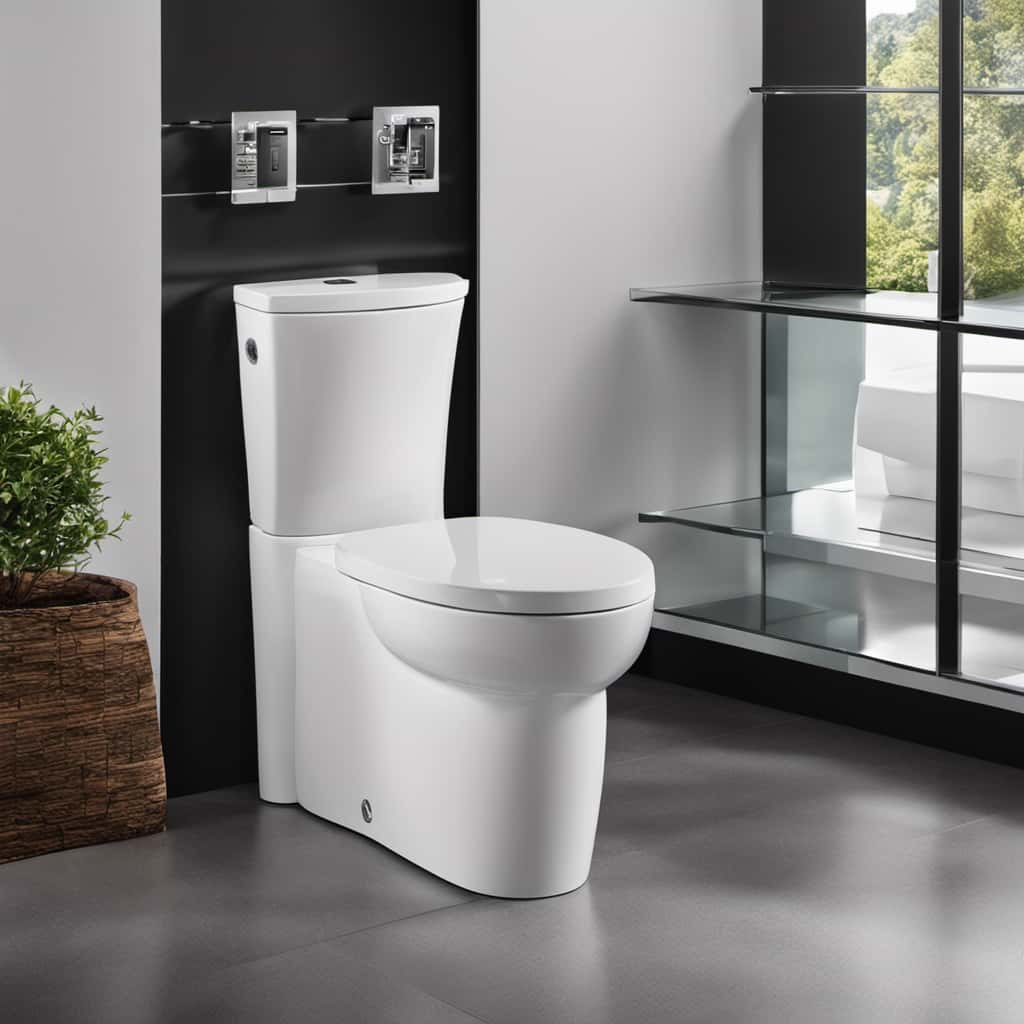
- Hazardous chemicals: Many personal care products contain hazardous chemicals such as parabens, phthalates, and triclosan. These substances can be harmful to aquatic life and may disrupt ecosystems if they enter water bodies.
- Environmental impact: Improper disposal of personal care product waste can result in contamination of water sources, affecting both human health and wildlife. It’s crucial to dispose of these liquids responsibly to minimize their impact on the environment.
- Proper disposal methods: Check local regulations for guidance on disposing of personal care product waste. In many cases, it’s best to minimize waste by using products sparingly and opting for environmentally friendly alternatives. When disposing of liquid waste, consider recycling options or take it to a designated hazardous waste collection facility.
- Consumer responsibility: As consumers, we’ve a role to play in minimizing the environmental impact of personal care products. Choosing products with eco-friendly formulations and packaging, as well as properly disposing of any liquid waste, can help protect the environment for future generations.
Frequently Asked Questions
Can I Flush Coffee Down the Toilet?
We can’t flush coffee down the toilet. It’s best to dispose of coffee grounds in alternative methods, like composting or throwing them in the trash. Flushing coffee can clog pipes and cause damage.
Is It Safe to Flush Expired Medication Down the Toilet?
Flushing expired medication down the toilet is not safe. It can have detrimental environmental impacts. Remember, "An ounce of prevention is worth a pound of cure." Properly dispose of medication through take-back programs or at designated collection sites.
Can I Dispose of Bleach by Flushing It Down the Toilet?
Flushing bleach down the toilet is not a safe way to dispose of it. The environmental impact of flushing bleach includes potential contamination of water sources and harm to aquatic life.
Is It Okay to Flush Cooking Oil or Grease Down the Toilet?
Flushing cooking oil or grease down the toilet is a big no-no. It can clog the pipes and cause serious plumbing issues. Proper grease disposal involves cooling, solidifying, and disposing of it in the trash.

Can I Flush Pet Waste, Such as Cat Litter, Down the Toilet?
When considering toilet safety precautions, it’s important to note that flushing cat litter down the toilet is not recommended. Cat litter can cause clogs and damage to plumbing systems. Dispose of it properly in the trash instead.
Conclusion
In conclusion, it’s important to only flush water, urine, toilet paper, and liquid waste from cleaning and personal care products down the toilet. Flushing other liquids can cause clogs and damage to the plumbing system.
Did you know that approximately 75% of plumbing issues are caused by improper flushing? Imagine the frustration of dealing with a clogged toilet and the costly repairs that can follow.
Let’s be mindful of what we flush to avoid unnecessary plumbing problems.
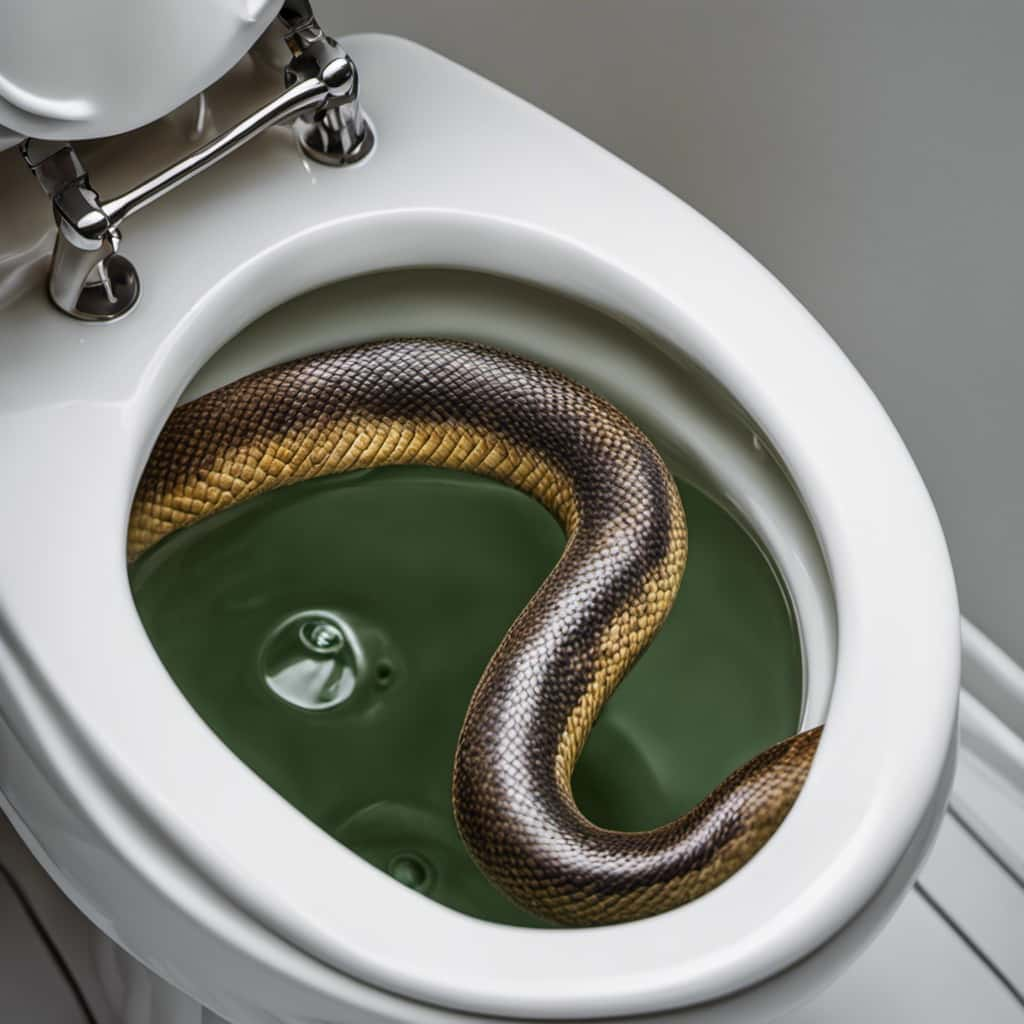
With an impeccable eye for detail and a passion for bathroom-related, Ava leads our editorial team gracefully and precisely.
Under her guidance, Best Modern Toilet has flourished as the go-to resource for modern bathroom enthusiasts. In her free time, you might find Ava exploring antique shops and looking for vintage bathroom fixtures to add to her collection.
-

 Guides3 months ago
Guides3 months agoHow Smart Toilets Can Help Detect Early Signs of Health Issues
-

 Guides3 months ago
Guides3 months agoThe Future of Public Restrooms: Smart Toilets in Airports, Malls, and Stadiums
-

 Guides3 months ago
Guides3 months agoSmart Toilets in Japan: What We Can Learn From the Leaders in Toilet Tech
-

 Guides2 months ago
Guides2 months agoThe Rise of Smart Toilet Apps: Tracking Health and Habits on Your Smartphone
-

 Guides2 months ago
Guides2 months agoThe Future of Bathroom Cleaning: How Smart Toilets Are Making Chores Obsolete
-

 Guides3 months ago
Guides3 months agoSmart Toilet Regulations and Standards: Navigating the Legal Landscape
-

 Guides2 months ago
Guides2 months agoSmart Toilets in Healthcare: Improving Patient Care and Monitoring
-

 Guides3 months ago
Guides3 months agoThe Impact of Smart Toilets on Real Estate Value and Home Sales






